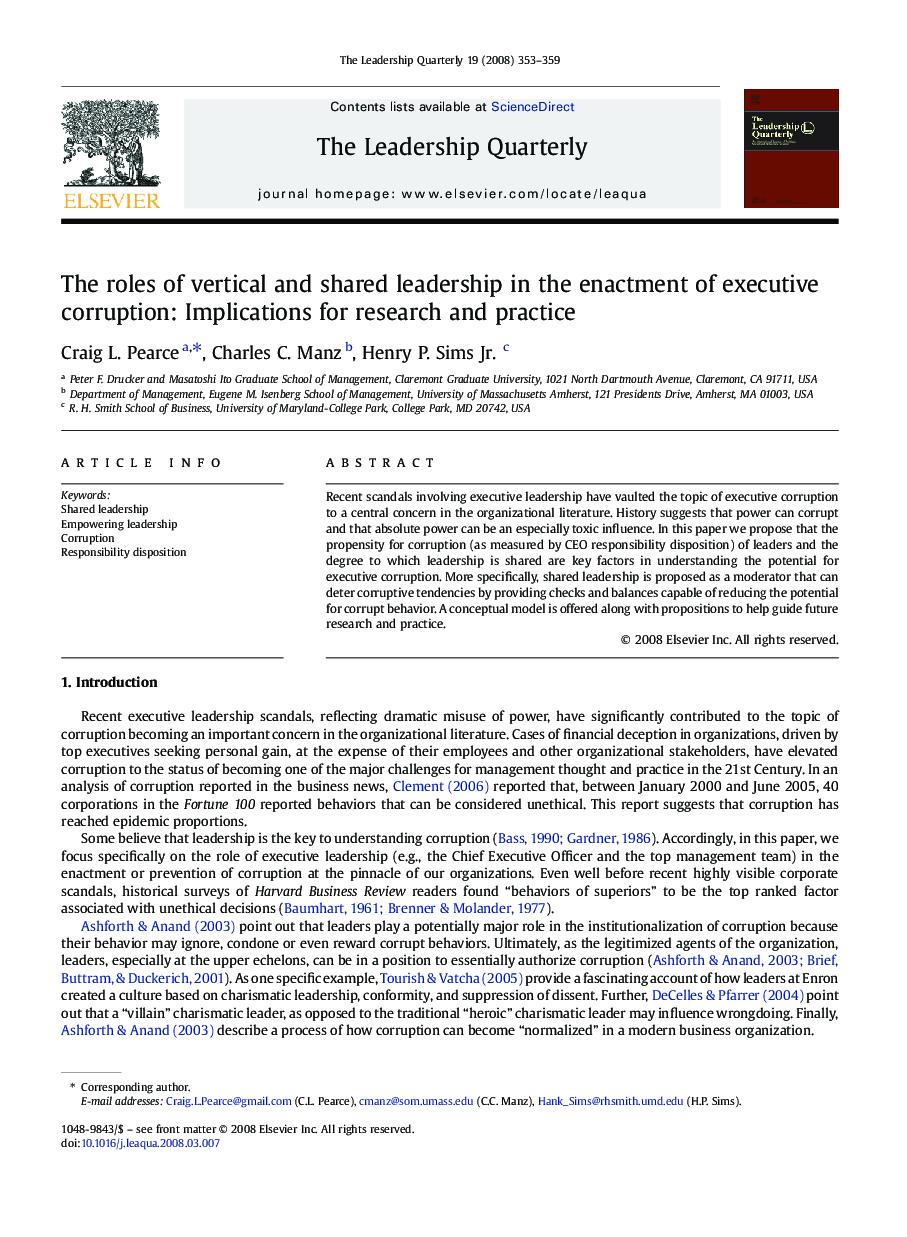| Article ID | Journal | Published Year | Pages | File Type |
|---|---|---|---|---|
| 888310 | The Leadership Quarterly | 2008 | 7 Pages |
Recent scandals involving executive leadership have vaulted the topic of executive corruption to a central concern in the organizational literature. History suggests that power can corrupt and that absolute power can be an especially toxic influence. In this paper we propose that the propensity for corruption (as measured by CEO responsibility disposition) of leaders and the degree to which leadership is shared are key factors in understanding the potential for executive corruption. More specifically, shared leadership is proposed as a moderator that can deter corruptive tendencies by providing checks and balances capable of reducing the potential for corrupt behavior. A conceptual model is offered along with propositions to help guide future research and practice.
